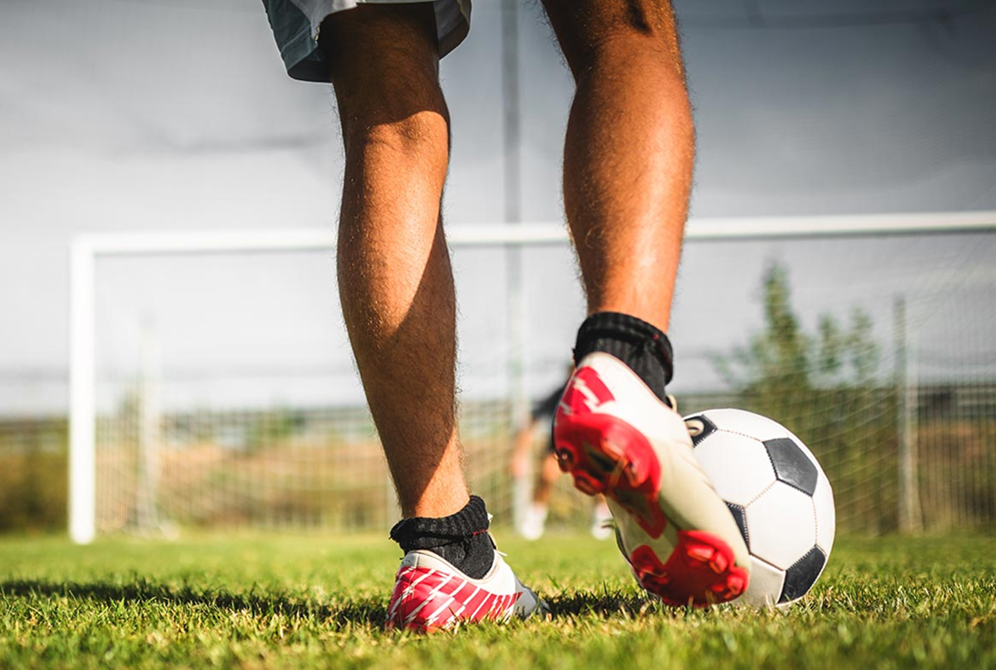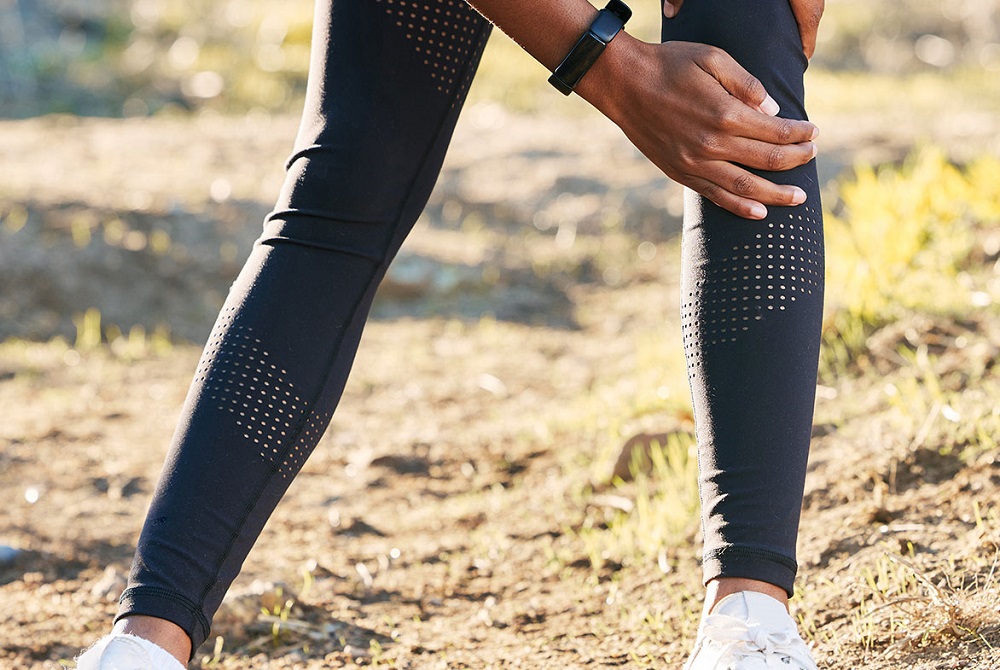
How Acupuncture Can Help Soothe Pregame Anxiety
May 7, 2024
The topic of mental health in sports has been mostly ignored until fairly recently. But thanks to several high-profile athletes’ willingness to open up about their struggles, the topic is no longer quite so taboo.
 “Athletes at all levels are realizing the importance of their overall mental health, mental preparation before an event and mental recovery afterward,” says Thomas R. Betts, DAOM, LAc, a sports medicine acupuncturist at Henry Ford Health. “Having your mind in the right place pays big dividends in terms of sports performance.”
“Athletes at all levels are realizing the importance of their overall mental health, mental preparation before an event and mental recovery afterward,” says Thomas R. Betts, DAOM, LAc, a sports medicine acupuncturist at Henry Ford Health. “Having your mind in the right place pays big dividends in terms of sports performance.”
One of the many tools athletes are using to get their minds healthy is acupuncture. It may be an ancient Chinese practice, but it can be useful to help improve the mental health of modern athletes.
What Is Acupuncture?
Acupuncture is a healing technique that has been used in traditional Chinese medicine for thousands of years. Acupuncture practitioners (acupuncturists) insert very fine, thin needles into the skin at various points on the body, depending on what condition they’re treating.
According to traditional Chinese medicine, the insertion points for the needles correspond to specific internal organs or energy channels in the body. “The philosophy behind traditional Chinese medicine is that acupuncture works by manipulating the flow of blood and energy to create balance and harmony in the body,” says Betts.
From a Western medicine perspective, acupuncture works by stimulating the central nervous system and by having some direct effect on the tissues in which needles are placed. Acupuncture also has a balancing effect on hormones within the body. It works well with other treatments for anxiety such as sports psychology, massage therapy, guided visualization and meditation.
How Can Acupuncture Improve Sports Performance?
Acupuncture has long been used to help people relax, reduce stress and cope with anxiety. And it can have that effect even when the acupuncturist is treating a physical problem. “Even when I’m treating an athlete for a sports injury, when I ask how they feel post treatment the overwhelming response I hear is ‘I feel so relaxed,’” says Betts.
This is why acupuncture seems like a natural fit for helping athletes of all levels cope with performance anxiety, pregame jitters or other competition-related fears. “Reducing stress helps athletes perform better,” says Betts. “And more and more athletes are realizing that taking care of their mental health and using tools to stay mentally focused can really enhance their performance.”
When Should Athletes Try Acupuncture?
Since an acupuncture session can leave you feeling super calm and relaxed, you don’t want to try it for the first time right before a game or competition. “The timing is important,” says Betts. “You want the athlete to feel motivated to compete, not totally Zenned out.”
The best approach is to schedule a series of acupuncture sessions in the weeks leading up to a big game, competition or race. Betts says he typically recommends athletes come in twice a week for three weeks to get started. “It’s not about treating their anxiety in the moments before a game,” he says. “It’s about establishing a baseline of calm that they can carry with them into the competition.”
While there’s still some stigma surrounding athletes and mental health, Betts sees the popularity of acupuncture as one sign of a shift. “I think we’re trending in the right direction for mental health,” he says. “Athletes are starting to understand that if they want longevity and success in their sport, they need to take care of their mental and emotional health—not just the physical.”
Reviewed by Thomas Betts, DOAM, RAc, a certified sports acupuncturist who sees patients at the Henry Ford Center for Athletic Medicine in Detroit.
To find a sports medicine provider at Henry Ford Health, visit henryford.com/athletes or call 313-651-1969.

Snap, Crackle & Pop: Why Do My Knees Make Noises - And Should I See a Doctor?
April 5, 2022
Do you ever just go about your daily life and then, seemingly out of nowhere, your knee makes a noise?
You might call it a weird idiosyncrasy and not think twice about it—or you might turn to the Internet to try and find all of the potential issues that might be wrong with your knee.
But if your knee pops or cracks once in a while, it’s usually no cause for concern. After all, joints sometimes make noises, and knees are no exception (especially when you squat or sit down.)
“Infrequent knee pops and cracks are more common in the younger population, says Nancy White, M.D., a sports medicine physician at Henry Ford Health. “When you feel that ‘pop,’ it means your kneecap was pulled a bit outside of where it’s supposed to be, and so it’s correcting itself and getting back into position. You can kind of feel that something moved.”
If, however, pain or swelling accompanies a noisy knee, you should have it evaluated by a sports medicine provider. And if your knee is popping or cracking regularly, that's another sign you should have it checked out.
“If you let it go, your knee could get worse,” says Dr. White. “There are recommendations a doctor can make to prevent this from happening, such as strengthening and flexibility exercises.”
What Is Knee Crepitus?
If your knee sounds like Rice Krispies crackling (or you experience a grinding sensation) it likely means you have knee crepitus, which can signify the beginning of osteoarthritis behind the kneecap.
“Knee crepitus is primarily caused by an issue called patellofemoral dysfunction,” says Dr. White. That sounds like a mouthful, but it means that your knee isn’t tracking straight up and down like it’s supposed to.
“There’s cartilage on the back of your kneecap and on the front part of your thigh, and the cartilage on the front part of your thighbone makes a groove so the kneecap can glide straight up and down in a floating position,” says Dr. White. “If the cartilage is worn down (and inflamed, worn-down cartilage signifies osteoarthritis), the kneecap can’t smoothly glide up and down, causing knee crepitus.”
If you are experiencing knee crepitus, you should see a sports medicine primary care physician, especially if it is accompanied by pain. They can recommend a variety of treatments, such as physical therapy and cortisone injections.
Still not sure if your noisy knees are cause for concern? When in doubt, call your doctor. After all, the sooner your doctor can examine it, the sooner you can prevent an issue from getting worse.
To learn more about your orthopedic condition or to find a provider, visit henryford.com/ortho.
Dr. Nancy White is a sports medicine physician with Henry Ford Health. She sees patients at Henry Ford Medical Center – Novi, and Henry Ford Medical Center – Bloomfield Township.


